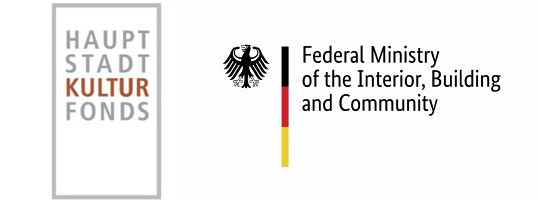Postcolonial architectural modernism in Southeast Asia is increasingly becoming a topic of discussion in light of rapid urbanization and ongoing processes of decolonization in the region. In Germany and Europe, however, this architecture and the debate surrounding it are barely known. Contested Modernities now transfers this Southeast Asian discourse to Berlin with an exhibition, online events, and a publication, revealing surprisingly similar discussions that are currently being held about the architectural heritage of modernism.
Contested Modernities brings current positions on Southeast Asian modernism into an international dialogue and opens up new perspectives on the history, meaning, and future of modernism—in the region and beyond. The project is part of the long-term programme Encounters with Southeast Asian Modernism and is based on a multi-year exchange between the Berlin curatorial team and scholars, architects, artists, and curators from the region. In 2019, intensive explorations of postcolonial architecture in each city were made possible by research, exhibitions, and events taking place in Phnom Penh, Jakarta, Yangon, and Singapore. The extensive findings gathered through the collaborative experience, together with the knowledge developed thanks to transdisciplinary exchange, form the starting point for this year’s programme in Berlin.
Starting in April 2021, a public online discourse programme will convene key players from Southeast Asia and Berlin, as well as international experts—from the fields of architecture, art, science, and administration—to jointly reflect on common topics and possible courses of action. Within the framework of the programme, ARCH+ magazine dedicates an issue on the topic, published in April 2021. In autumn 2021, an exhibition in Berlin will follow. Contested Modernities is an initiative by the curators Sally Below, Moritz Henning, Christian Hiller, and Eduard Kögel.
Building Modernities
Online symposium and launch of the ARCH+ issue Contested Modernities
Friday, April 16, 2021, 2–5pm MEZ; 7–10pm UTC+7
Upon gaining independence in the mid-20th century, many cities in Southeast Asia also changed dramatically in terms of their physical appearance. The task of becoming an independent nation was accompanied by the desire for a symbolic new beginning in architecture and urban planning. International modernism not only offered an aesthetic programme that reflected expectations of progress and prosperity, but also served as a means of emancipation from the colonial powers.
While planners of the former colonial powers continued to work in these countries even after they became independent, young local architects, some of whom had trained in Europe, the United States, or the Soviet Union, began searching for an architectural style that, informed by their local climate and culture, would catalyse a new sense of identity. Some of these architects created informal networks that transcended national borders, and together looked for ideas to shape the city in the tropics.
Furthermore, as part of the political reorientation process taking place in these young nations, new, transnational alliances emerged, and with them, new paths of knowledge and architecture transfer. How did these international networks work? Who initiated them? Did conflicts arise during their collaboration, and if so, how were they handled? What were the geopolitical ambitions that motivated this engagement?
Anh-Linh Ngo, architect and ARCH+ Editor-in-Chief: Introduction and moderation
Christina Schwenkel, Professor, Department of Anthropology, University of California, Riverside: “Anticolonial Solidarity and Decolonial Planning in Vietnam”
Eduard Kögel, lecturer, researcher, curator: “Julius Posener and Lim Chong Keat: The Malayan Architect on Trial”
Wee H. Koon, architect, researcher, educator: “An Emergent Asian Modernism”
farid rakun, architect and artist, ruangrupa/Gudskul: “On Transdisciplinary Networks.” Against the backdrop of the previous contributions farid rakun and Anh-Linh Ngo discuss transdisciplinary and transnational networks and knowledge exchange between art and architecture.
The online event will be held in English via Zoom. Please register here.
This project is funded by the Hauptstadtkulturfonds (Capital Cultural Fund) of Berlin and the Federal Ministry of the Interior, Building and Community (BMI).





